1993. Black Autumn "White House". From notes of a Muscovite (part of 1)
Immediately, at the fence - fragments of barricades, red flags and banners, bouquets of flowers. This modest memorial arose spontaneously in the same terrible autumn, without the permission of the city authorities and to their obvious displeasure. And although all these years from time to time there is talk about the impending sweep and "landscaping" of the territory, obviously, even the most indifferent officials do not raise their hand. Because this memorial is the only island in Russia in memory of the national tragedy that unfolded here in late September - early October 1993.
In the center of events
It seems that this old district of Moscow called Presnya is destined to become the scene of dramatic events. In December, 1905, the site of an armed uprising against the tsarist government, cruelly crushed by the troops, was located here. The battles on Presnya became the prelude of the Russian revolution 1917 of the year, and the echoes of those events, the victorious communist authorities, were captured in the names of the surrounding streets and monuments dedicated to the rebels.
Years passed, and once the factory district began to be built up with buildings intended for various institutions and departments. At the end of the 70 of the last century, a pompous building for the Council of Ministers of the RSFSR appeared on Krasnopresnenskaya Embankment. But, despite the respectable appearance, the rebellious spirit, it seems, was firmly saturated with the Presnensian soil and waited in the wings.
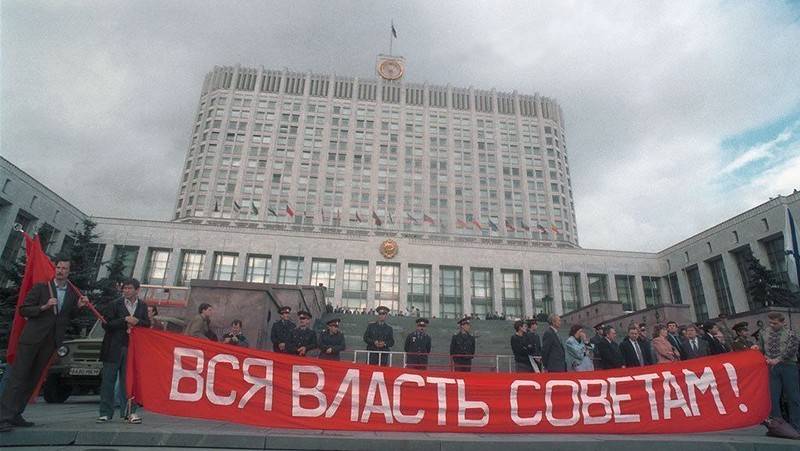
The Russian Federation, despite its systemic role, was the most powerless part of the Soviet Union. Unlike other union republics, it did not have its own political leadership, all attributes of statehood were purely declarative in nature, and the Russian “government” was a purely technical body. It is not surprising that the “White House”, so called because of the color of the facades decorated with marble, was on the periphery of the country's political life for many years.
The situation changed when in 1990, the Supreme Soviet of the RSFSR settled on Krasnopresnenskaya Embankment. Perestroika of Mikhail Gorbachev reached its apogee, the Allied center weakened and the republic won back more and more powers. The Russian parliament, headed by Boris Yeltsin, was at the forefront of the struggle for independence. Thus, the “White House”, the once silent refuge of disgraced officials, found itself in the midst of turbulent events.
Yeltsin won incredible popularity as an irreconcilable antagonist of Gorbachev, who by then seemed tired of the whole country with his idle talk and the rare ability to exacerbate old problems and generate new ones. The republics more insistently demanded the redistribution of power in their favor. As a compromise, Gorbachev proposed to conclude a new Union treaty, which would reflect the current political reality. The document was ready for signing when events took an unexpected turn. 19 August 1991 became aware of the creation of the State Emergency Committee - a kind of collegial body of senior officials, led by USSR Vice President Gennady Yanayev. The State Emergency Committee removed Gorbachev from power under the pretext of his illness, introduced a state of emergency in the country, allegedly necessary to combat the anarchy that engulfed the country.
The White House was the stronghold of the confrontation of the Emergency Committee. To support and protect the Russian deputies and Yeltsin, thousands of citizens began to gather here. Three days later, having no broad public support, no coherent program of action, no authority to implement them, not a single leader, the Emergency Committee in fact self-destructed.
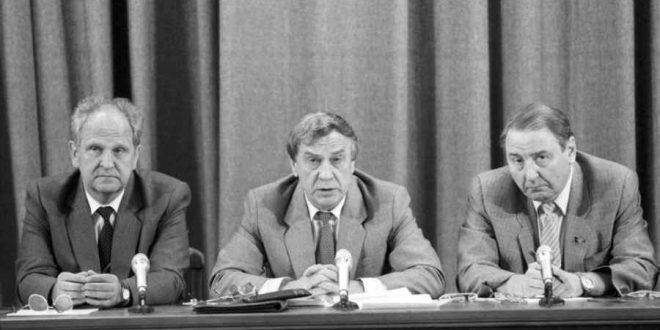
Interior Minister Boris Pugo, failed President Gennady Yanayev and already completely forgotten deputy chairman of the defense council Oleg Baklanov
The “victory of democracy” over the “reactionary” coup was a blow that buried the Soviet Union. Former republics now became independent states. The president of the new Russia, Boris Yeltsin, issued a carte blanche to the government, led by economist Yegor Gaidar, to carry out radical reforms. But the reforms did not immediately set. Their only positive result was the disappearance of the commodity shortage, which, however, was a predictable result of the rejection of state regulation of prices. The monstrous inflation devalued bank deposits of citizens and put them on the verge of survival; against the background of a rapidly impoverished population, the wealth of the nouveau riche stood out. Many enterprises were closed, others, barely staying afloat, suffered from a non-payment crisis, and their employees - from wage arrears. Private business was under the control of criminal gangs, which in their influence successfully competed with the official authorities, and sometimes substituted them. The official corps was struck by total corruption. In foreign policy, Russia, formally becoming an independent state, turned out to be a vassal of the United States, blindly following in the wake of the Washington course. The long-awaited "democracy" turned into the fact that the most important state decisions were taken in a narrow circle, consisting of random people and outright rogues.
Many deputies, who had recently fervently supported Yeltsin, were discouraged by what was happening, and they were also affected by the voters, who were indignant at the consequences of Gaidar's “shock therapy.” Since the beginning of 1992, the executive and legislative branches of government have increasingly moved away from each other. And not only in a political sense. The president moved to the Moscow Kremlin, the government moved to the back complex of the former CPSU Central Committee on Old Square, and the Supreme Soviet remained in the White House. So the building on the Krasnopresnenskaya embankment from the stronghold of Yeltsin became the stronghold of the opposition to Yeltsin.
Meanwhile, the confrontation between parliament and the executive branch was growing. Former closest associates of the president, the speaker of the Supreme Council, Ruslan Khasbulatov, and vice-president Alexander Rutskoi, have become his worst enemies. Opponents exchanged mutual recriminations and accusations, as well as conflicting decrees and decrees. At the same time, one side resisted on the fact that the deputies’s corps was hindering market reforms, while the opposite side accused the presidential team of ruining the country.
Hard to believe, but before the "divorce" they remained a matter of days
In August 1993, Yeltsin promised a hot autumn to the recalcitrant Supreme Soviet. This was followed by the President’s demonstrative visit to the Dzerzhinsky Internal Troops Division, a unit designed to quell riots. However, in a year and a half of confrontation, society became accustomed to the war of words and the symbolic gestures of opponents. But this time the words were followed by words. 21 September Yeltsin signed a decree number 1400 on a phased constitutional reform, according to which the parliament was supposed to stop its activities.
In accordance with the then Constitution of 1978, the president did not have such powers, which was confirmed by the Constitutional Court of the Russian Federation, which recognized the decree of September 21 as illegal. In turn, the Supreme Council decided to impeach President Yeltsin, whose actions Ruslan Khasbulatov called the "coup d'état." Acting President of the Russian Federation Deputies appointed Alexander Rutsky. The prospect of diarchy loomed before Russia. Now Yeltsin’s opponents reached out to the White House. Again, for the third time in the 20th century, barricades began to be erected on Presnya ...
Parliament: blockade chronicle
The author of these lines in those years lived a few hundred meters from the building of the Russian parliament and was an eyewitness and participant in the events that took place. What, besides the political background, were two defenses of the White House?
In 1991, his defenders were bolstered by hope, faith in tomorrow and the desire to protect this wonderful future. It soon became apparent that the then views of Yeltsin’s supporters of democracy and a market economy were utopian, but it’s hardly wise to scoff at past romantic illusions and, moreover, to reject them.
Those who came to the Presnensky barricades on 93 had no faith in a bright tomorrow. This generation was brutally deceived twice - first by Gorbachev's restructuring, then by Yeltsin's reforms. In 93, people at the White House united today and the feeling that dominated here and now. It was not the fear of poverty or the revelry of crime, this feeling was humiliation. It was humiliating to live in Yeltsin Russia. And the worst thing - there was not a single hint that the situation could change in the future. To correct mistakes, you need to recognize them or at least notice. But the government smugly asserted that it is right everywhere, that reforms require sacrifice, and the market economy will put everything in its place.
In the 91 year, for the defenders of the White House, Yeltsin and the “democratic” deputies were genuine idols; they were treated with contempt and ridicule to the putschists from the State Emergency Committee. Those who came to parliament in 93 did not feel respect for Khasbulatov, Rutsky and other leaders of the opposition, but they all hated Yeltsin and his entourage as one. They came to defend the Supreme Council not because they were impressed by its activities, but because by chance the parliament turned out to be the only obstacle to the degradation of the state.
The most important difference is that in August 91-k three people were killed, and their death was the confluence of absurd circumstances. In 93, the sacrifice count was hundreds, people were killed deliberately and in cold blood. And if the August 1991 is hardly a farce, then the bloody autumn of 1993 is undoubtedly a tragedy of national scale.
Yeltsin read his decree on television late at night on September 21. The next day, outraged Muscovites began to gather near the walls of the White House. At first, their number did not exceed a couple hundred. The contingent of protesters consisted mainly of elderly habitues of communist rallies and city madmen. I remember one grandmother who chose a hillock who was warmed by the autumn sun and occasionally loudly shouted “Peace to your home, the Soviet Union!”
But already on September 24, the situation began to change dramatically: the number of supporters of the parliament began to number in the thousands, their composition became much younger and, if I may say so, was “demarginated”. A week later, the crowd at the White House was no different from the crowd of the August 1991 model of the year - neither demographically nor socially. According to my feelings, at least half of the 93s gathered by the parliament in the fall were “veterans” of the confrontation with the Emergency Committee. This refutes the thesis that the Khasbulatov Supreme Council was defended by embittered losers who did not fit into the market economy and who were dreaming about the restoration of the Soviet system. No, there were enough successful people here: private entrepreneurs, students of prestigious institutions, bank employees. But material well-being was unable to stifle feelings of protest and shame for what is happening with the country.
There were a lot of provocateurs. First of all, in this row, alas, it is worth noting the leader of the Russian National Unity, Alexander Barkashov. The “fascists” from the RNE actively used the regime to discredit the patriotic movement. Armed youths with a “swastika” in camouflage were willingly shown by TV channels as an example of the black forces behind the Supreme Soviet. But when it came to the storming of the White House, it turned out that Barkashov had taken most of his people from there. Today the place of the leader of the RNU was taken by new full-time “patriots” like Dmitry Demushkin. This gentleman at one time was Barkashov’s right hand, so personally I don’t have any doubts as to what address this leader receives instructions and help.
But back in the autumn of 93. By September 24, the deputies were actually blocked at the White House, where telephone, electricity and water supplies were turned off. The building was cordoned off by the police and military personnel. But for the time being, the cordon was symbolic: crowds of people passed through huge gaps to the besieged parliament without interference. These daily “raids” to the “White House” and back were intended not only to demonstrate solidarity with the Supreme Council, but also to obtain information about what is happening first-hand, because the blockade was physically supplemented by the media blockade. Television and print broadcast exclusively the official version of events, usually incomplete and always false.
Finally, by September 27, the blockade took on a solid look: the White House was surrounded by a solid triple ring, and neither journalists, nor parliamentarians, nor ambulance doctors allowed the building to pass. Now it’s not a problem to get to the Supreme Soviet — the problem was getting home: the Muscovites living in the vicinity, including the author of these lines, were only allowed on presentation of a passport with a residence permit. Policemen and soldiers were on duty around the clock in all the nearest courtyards and alleys.
Victor Anpilov, Albert Makashov. Now few people recognize them in the photos at first sight.
True, there were exceptions. Once, it seems, it was September 30, I decided late at night to try my luck and go to the White House. But in vain: all the passages were blocked. What was my surprise when I saw Viktor Anpilov talking peacefully with a group of people just like me unsuccessfully trying to get to the Armed Forces building. Having finished the conversation, he confidently headed straight for the police cordon, apparently without any doubt that he would be let through. No other way than the leader of “Labor Russia” had a pass, “all-terrain vehicle” ...
To be continued ...
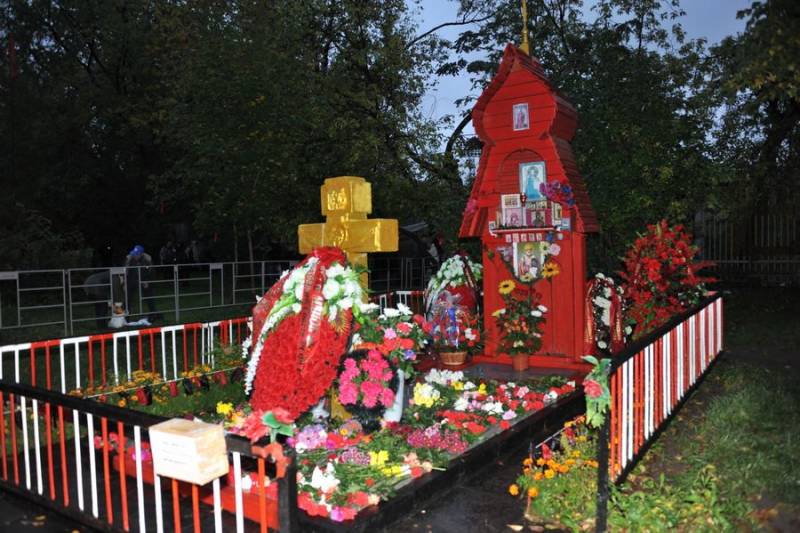
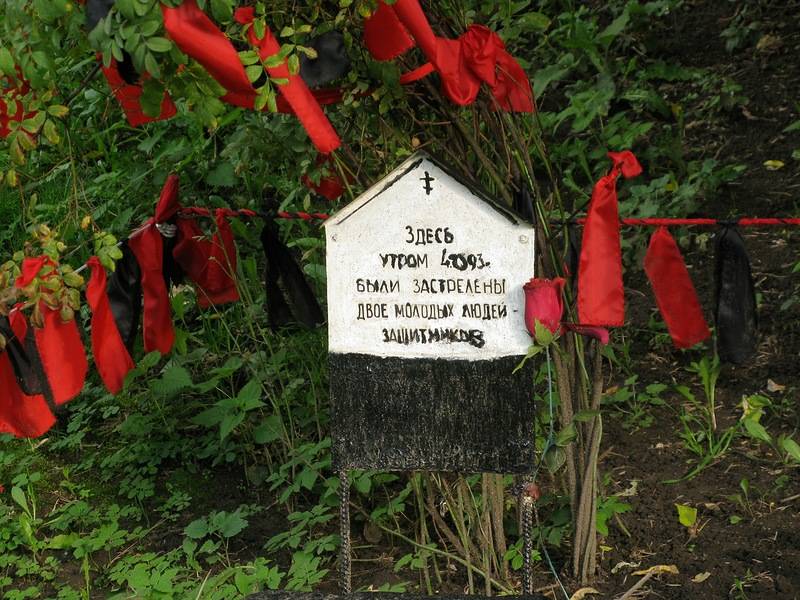
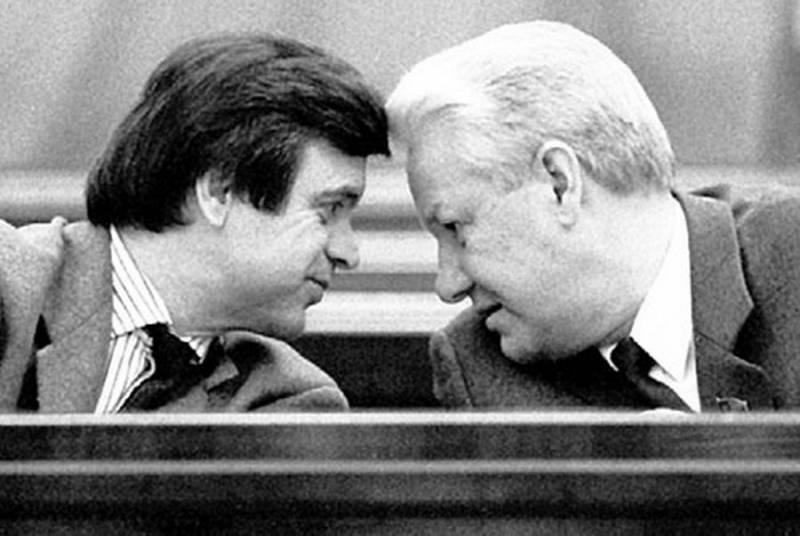
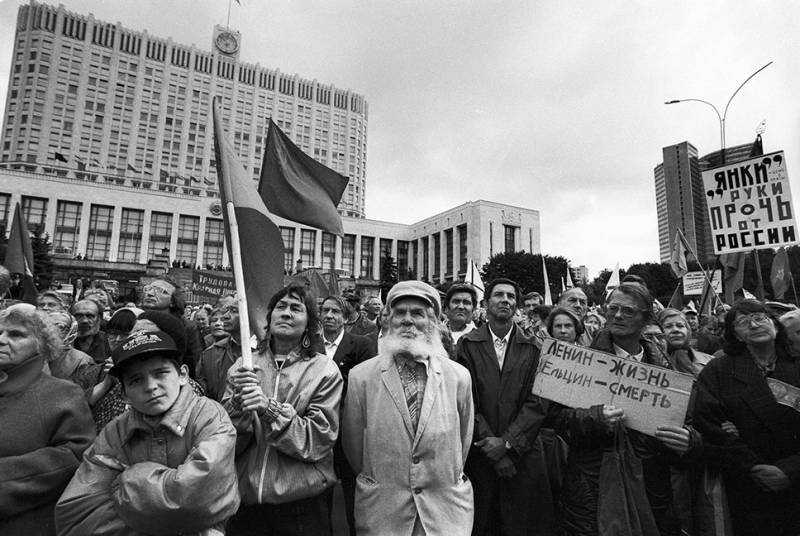
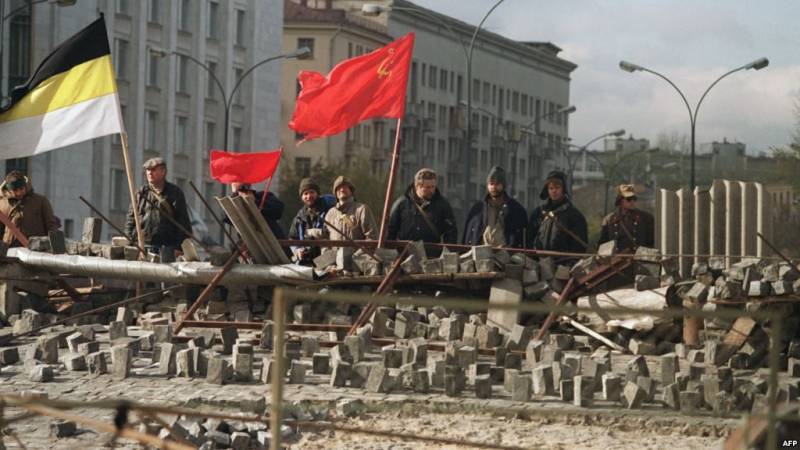
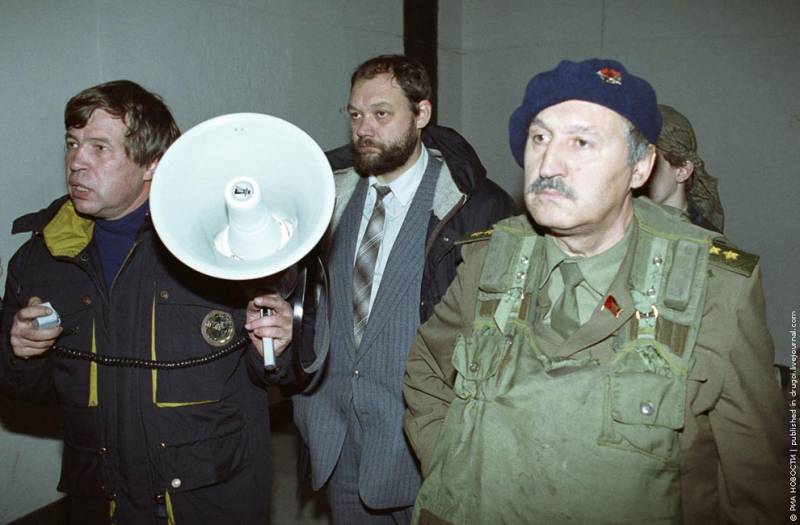
Information